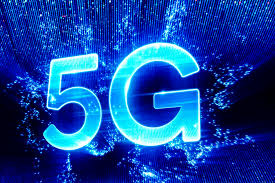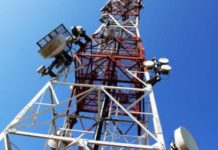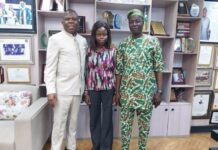Association of Licensed Telecom Operators of Nigeria (ALTON) has expressed surprise over recent issue in the media space regarding the strange connection of 5G technology to the Coronavirus pandemic across the globe.
In a statement signed by the chairman of ALTON, Gbenga Adebayo said it would ordinarily have dismissed this “controversy” which is being vociferously pursued by some people as ignorant tirades occasioned by the morbid fear of the rampaging Coronavirus, but with the prevailing circumstances of fear and tension, it has decided to categorically make the following statements.
- While aligning with the Minister of Communications and Digital Economy, Dr. Isa Ali Ibrahim Pantami that 5G has not been licensed by the Nigerian Communications Commission (NCC) in Nigeria, let us bear in mind that telecommunication standards are prescribed for use by the relevant international Regulatory Agencies after thorough and comprehensive tests have been carried out to ensure particularly that all approved standards are safe for the Human environment and health. Note therefore that all Spectrum and frequencies used today by the mobile and satellite industries, have been extensively researched and are covered by the international safety guidelines.
- There is no iota of truth that 5G Technology is the cause of the Coronavirus pandemic. The virus is also spreading in places without 5G networks like Nigeria. There are many parts of the world that do not have 5G coverage yet but are still affected by the virus e.g Parts of United Kingdom, Iran, Russia has no 5G for commercial use (except for some of their military deployments) etc
- Note that in all the generations of wireless network technology (5G,4G,3G,2G&1G) mobile data is transmitted over radio waves. Other types of technology that use radio waves include smart meters, TV and radio transmitters, and radar and satellite communications. Most modern medical laboratory equipment use radio waves, some use nuclear radiation, but they are used within the guidelines. We dare say that every medication has recommended dosage. Even too much food and drinks can become injurious to health. This is basically the same principle on which radio waves operate. There are acceptable safe limits, which are determined, specified, regulated and supervised by International Technology Regulatory bodies as stated above
- Please be aware that Nigeria progressed from 1G to the current 4G which most networks offer to their subscribers today. Even with all the virtues of the novel 5G, our BTS Sites across the country are still bereft of this technology. We will want to re-emphasize that several studies have been carried out even before the 5G emergence, indicating that the microwave emissions from these infrastructures have no harmful effect on human health. Research into the safety of radio signals, which has been conducted for more than 50 years, has led to the establishment of human exposure standards including safety factors that protect against all established health risks. The Electro Magnetic Fields on masts and towers are so insignificant when compared to microwave cooker at home, our television set and computers we use most of the time. See some of the opinions below
a. “…it is the opinion of ICNIRP that the scientific literature published since the 1998 guidelines has provided no evidence of any adverse effects below the basic restrictions and does not necessitate an immediate revision of its guidance on limiting exposure to high frequency electromagnetic fields.” International Commission on Non-Ionising Radiation Protection (ICNIRP), 2009
b. “A large number of studies have been performed over the last two decades to assess whether mobile phones/Telecommunications Masts and Towers pose a potential health risk. To date, no adverse health effects have been established as being caused by mobile phone use.” World Health Organization (WHO), 2011
c. “…Recent research on exposure from transmitters has mainly focused on cancer and symptoms, using improved study designs. These new data do not indicate health risks for the general public related to exposure to radiofrequency electromagnetic fields from base stations for mobile telephony, radio and TV transmitters, or wireless local data networks at home or in schools.” Independent Expert Group on Electromagnetic Fields (Sweden), 2013
- ALTON notes with concern that the laying of fibre cables are associated with rumours around the rollout of 5G. ALTON hereby affirms that fibre cables are used to safeguard the existing 1G/2G/3G/4G networks and provide additional capacity to the existing networks, which is intended to enhance user experience and network availability. Fibre cables are also used to replace microwave equipment, thereby reducing equipment on telecommunications masts. ALTON therefore states that damaging or limiting the laying of fibre cables will severely affect the ability of Network Operators to provide the necessary services to both subscribers and enterprise customers and this will adversely impact the integrity of the networks. ALTON unequivocally states that there is NO association whatsoever between the laying of fibre cables with the rollout of 5G, as 5G is not yet licensed in Nigeria.
ALTON said:
- The theories that are being spread about 5G on social media and News Media are baseless and are not grounded in accepted scientific theory. Mats Granryd, Director General of the GSMA, the global Communications Industry body has stated as follows:
- “The telecoms industry is working around the clock to keep vital health, education and emergency services online, businesses running, and friends and families connected. It is deplorable that critical communications infrastructure is being attacked in some places, based on outright mistruths. We urge everyone to trust the health authorities and rest assured, communications technology is safe. There is no link between 5G and Covid-19”
- Telecommunications masts and towers in Nigeria are safe and their EMF emissions are not harmful to human health and are not only regulated in line with International Regulatory Agencies guidelines but also by the Nigerian Communications Commission (NCC), the Industry regulator
- The telecommunications industry in Nigeria guided by the NCC will sustain the expansion of their networks in other to continue to offer good quality of service and experience.












